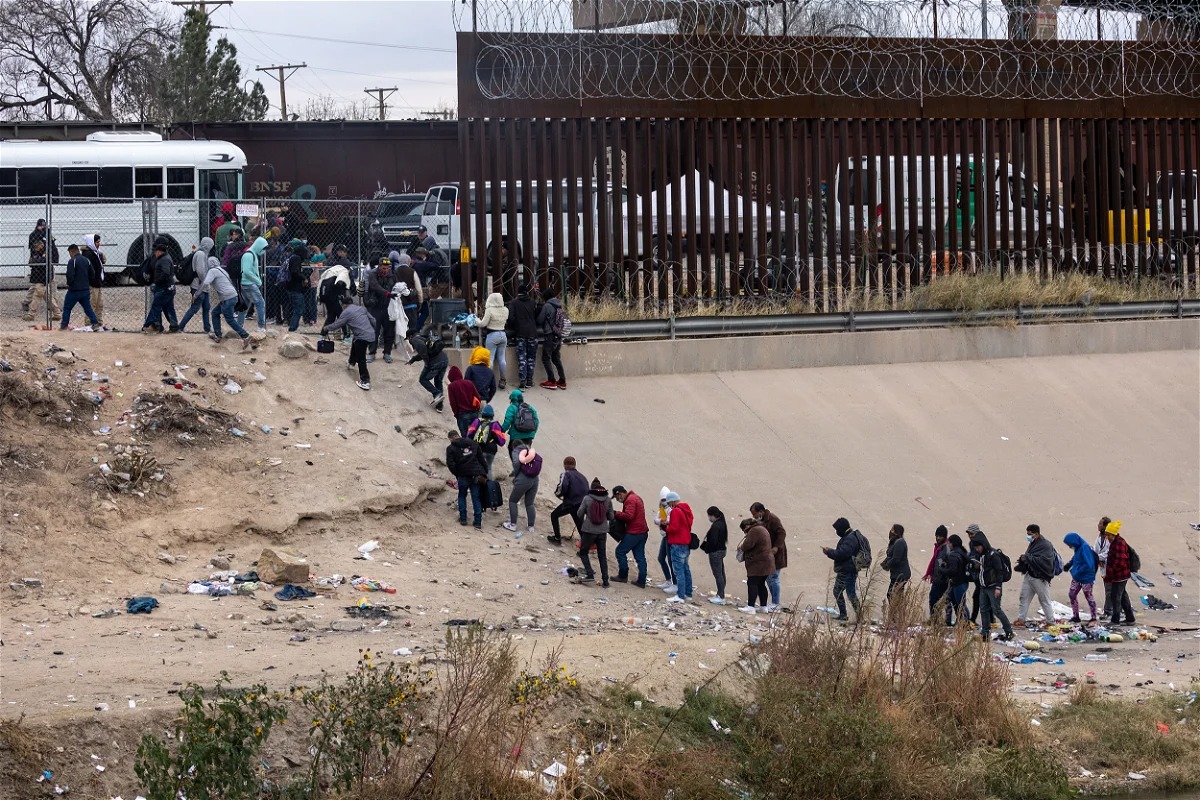The Biden administration has taken a firm stance against Texas’ immigration law, SB4, asking the Supreme Court to block its enforcement.
This law would enable Texas law enforcement officials to arrest migrants suspected of crossing into the U.S. without authorization, granting them the authority to stop, jail, and prosecute migrants on state criminal charges related to illegal entry or reentry.
It would also allow state judges to issue de facto deportation orders against suspected lawbreakers. Last week, U.S. District Court Judge David Ezra temporarily blocked Texas state officials from enforcing SB4, ruling that immigration arrests and deportations fall under federal responsibility.
Migrants (Credits: Axios)
However, the 5th Circuit Court of Appeals suspended Ezra’s order while it reviewed Texas’s appeal. Justice Samuel Alito has paused the 5th Circuit’s order until March 13, giving Texas time to plead its case.
Texas Governor Greg Abbott, who signed SB4 into law, argues that it is necessary to reduce migrant crossings, accusing the Biden administration of not doing enough to deter illegal immigration.
The Biden administration, on the other hand, views SB4 as interfering with federal immigration enforcement, ignoring U.S. asylum law, and damaging foreign relations, particularly with Mexico, which has criticized SB4 as “anti-immigrant.”
The legal battle over SB4 is part of a broader conflict between Texas and the Biden administration over immigration policy. Texas has taken several actions, such as deploying National Guard soldiers and busing migrants to other cities, to address what it perceives as inadequate federal enforcement.
The outcome of this legal battle will likely have significant implications for immigration policy and federal-state relations, particularly regarding the balance of power between state and federal authorities in enforcing immigration laws.
